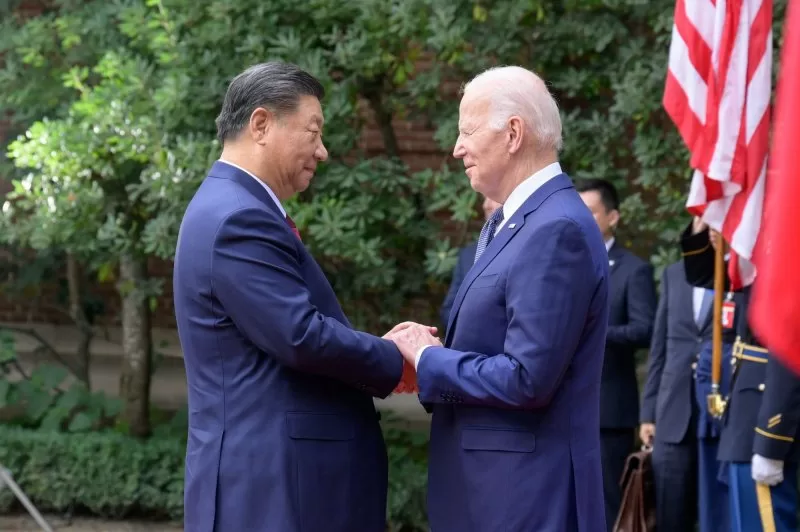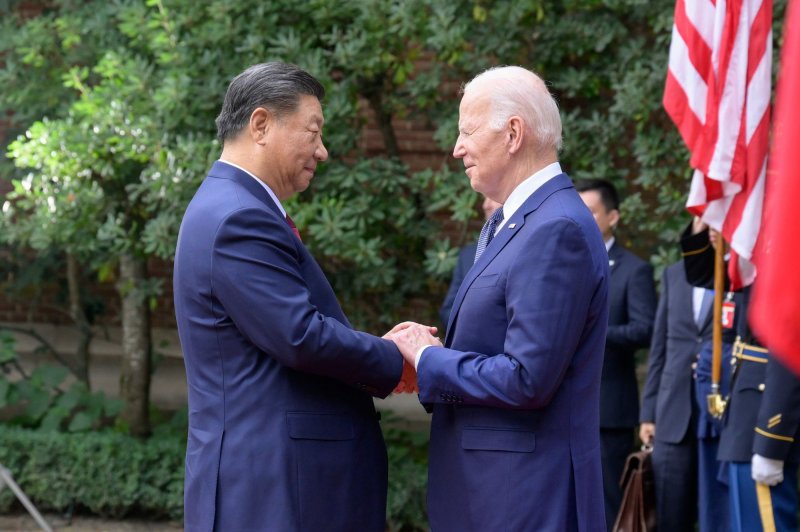U.S. President Joe Biden (L) meets with President Xi Jinping of the People’s Republic of China on Nov. 15, 2023, in Woodside, Calif. On Sunday, Beijing announced an investigation into copolymer formaldehyde exports from the United States, the European Union and others amid a growing trade dispute. File Photo via MFA China/UPI |
License PhotoMay 20 (UPI) — China has launched an anti-dumping investigation into copolymer formaldehyde imported from the United States and the European Union, after they announced similar measures targeting Beijing last week.
Copolymer formaldehyde is a thermoplastic resin that can be used to replace certain metal materials for auto parts, electronic applications and industrial machinery, among many other applications.
Beijing’s Ministry of Commerce announced the investigation Sunday, stating it had received a complaint from a company on behalf of mainland China’s copolymer formaldehyde industry.
Along with the United States and EU, exports from Taiwan and Japan will also be probe.
The ministry said it will investigate damages incurred by China’s domestic industry by the alleged price dumping from Jan. 1, 2021, to Dec. 31, 2023, with expectations that the probe will be concluded by May of 2025.
The move comes seemingly in response to measures the 27-member European bloc and the United States took last week seeking to right what they see as imbalances in the market caused by Beijing over producing certain products that it then floods the international markets with.
On Thursday, the European Commission, the executive arm of the EU, announced the launch of an anti-dumping investigation into Chinese imports of tinplated steel products.
EUROFER, the European Steel Association, applauded the move, saying in a statement that Chinese mills have been bloating the EU market with its overcapacities of tinplate at low prices for at least the last four years, causing “serious repercussions” for domestic products.
Meanwhile, President Joe Biden of the United States on Tuesday increased tariffs on some $18 billion worth of Chinese imports.
Products affected include steel, aluminum, electric vehicles and lithium-ion EV batteries as well as solar cells and ship-to-shore cranes, among others.
In response, Foreign Ministry spokesman Wang Wenbin accused the United States of continuing to politicize trade.
“This will only significantly drive up the cost of imported goods, inflict more loss on American companies and consumers and make the U.S. consumers pay even more,” he told reporters Wednesday during a regular press conference.
“The U.S.’ protectionist measures will further damage the security and stability of the global industrial and supply chains.”

